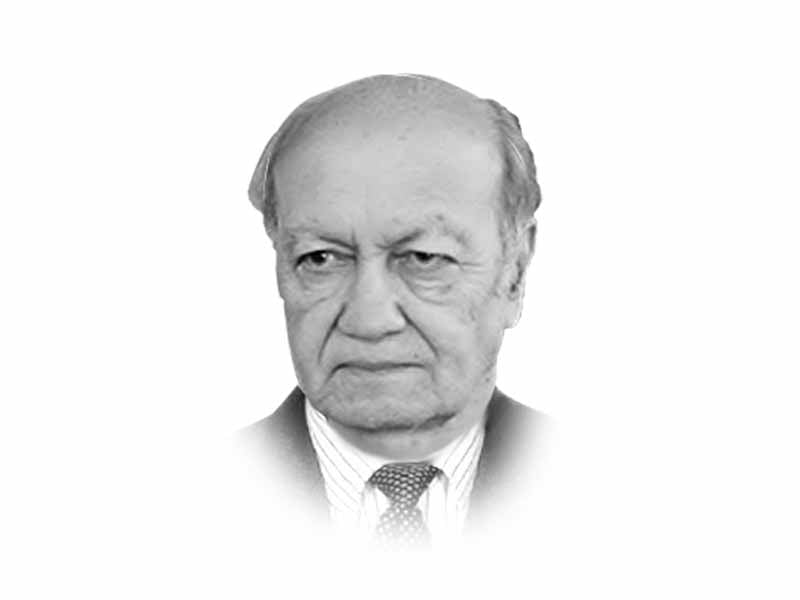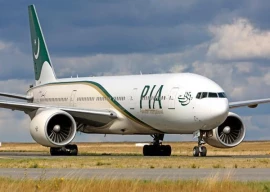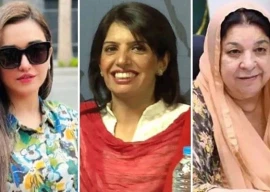
The recent election for the chairman of the Senate was mired in a bitter controversy. Earlier, the election for the Senate seat in which former PM Gillani won against Hafeez Shaikh were strongly disputed by the PTI. It is rare that an election in Pakistan goes unchallenged with the loser accusing of foul play. These unlawful activities are highly demoralising for the electorate when it finds itself being cheated. It is not surprising that the voter percentage has been dropping over the years. In the 2018 elections, the overall voter turnout across the nation was 51.7%. A drop from 2013 when turnout was high at 55.02%.
Not a single activity in Pakistan that involves power or money is not tainted by accusations and counter-accusations. Take any major business deal in communications, power sector, defence, aviation or any other government department — there would be doubts raised and fingers pointed toward someone or the other. Even if the transaction is clean and above board, which does happen as there are still among officials, politicians and business community honest souls that are not prepared to sell their conscience. But few would be willing to believe it.
There are valid reasons for the steep fall in confidence of the general public and this reflects adversely on the national leadership and society. It should not be taken lightly as it has serious political, economic and security related consequences and the image and reputation of the nation is involved.
A sense of cynicism prevails in the society. It is important that the government should pursue policies that discourage this trend by promoting talent and harnessing national resources properly. Past experience reminds us that just as despondency is contagious so is hope and determination. But if the government leaders in parliament and media are giving high priority to demeaning the opposition with not much to offer for the public good, and the opposition alliance is largely engaged in dragging the government down without a better alternative, what then would the people expect out of it but only despair.
The wealth amassed by the political and certain government officials across various departments — civil and military, autonomous bodies and business houses according to the National Accountability Bureau (NAB) and other investigating agencies, generally exceeds the authentic documented sources of income of individuals. Besides being a huge drag on a developing economy corruption distorts the government’s functioning as money rather than merit becomes the criteria in critical national decisions.
There is a strong perception that NAB and other agencies mostly focus on the opposition and there is an element of bias in their functioning. In the national interest, these assessments need to be addressed in order to win back the confidence of the people.
A significant number of senators and members of the national and provincial assemblies are rich, well above the average Pakistani. It is a rare phenomenon to find people with modest means in these elected bodies. Even the unelected advisers are generally from the upper income group. Among the smaller parties, MQM and a few others have leaders and parliament members who have a modest background but the party’s financial support has been quite generous until lately. Jamaat-e-Islami is rather unique that its leadership and membership is more ideologically and mission oriented. Apart from other factors, one reason for its feeble presence in parliament could be attributed to its leadership being more focused on sermonising on political good conduct, which in our environment has few takers.
In the European Union and other mature democracies, there are guidelines and specific laws as well as an ethical code of conduct for politicians to adhere strictly to, while in office or in opposition. Any departure from it usually results in the resignation or removal from the official position and even conviction. Despite all the regulatory framework there have been instances in Western countries where businessmen have been found guilty of giving bribes to win contracts, and politicians indulging in malpractices. Mostly, these firms and trading houses, both local and foreign, have targeted vulnerable clients in underdeveloped countries, further distorting their economy.
The reality is that poor governance coupled with corruption is relatively far more prevalent in poor countries which is seriously hurting their economies and adversely affecting political development and social behaviour. Various indicators reflect that the path to a cleaner and efficient democratic governance would require sustained political will and consensus among the political hierarchy and other state institutions. Mere sermonising on the virtues of honesty alone will not work.
The recent coup in Myanmar is a classic case of how a military through ruthless power-play ousted a democratically elected government. Ironically, the rationale given by the junta was that the elected government was corrupt and inefficient. To its surprise, it is meeting serious and sustained public opposition, but how will this valiant struggle of people play out in long run remains to be seen. Initially, China and Russia were somewhat supportive of the regime with the United States and the rest of the Western countries opposing it. Assessing that the situation has gotten ugly, China has been advising the ruling junta to review its policy while openly supporting it and Russia seems to hold back and remains ambivalent.
It is a sad commentary that high-level corruption is very common in several Muslim countries — be it in Asia, Africa or the Middle East. A major reason for this is loose accountability and the ruling elite itself being corrupt. Monarchies and dictators operate under a cover of secrecy providing relatively greater space for corruption and inefficiency. Syria is a classic case of how dictatorial rule combined with widespread corruption has destroyed a country that once was a pinnacle of civilisation.
The PTI government has been trying to convince the people that it can deliver and change their lives but not many are prepared to believe them. Improving overall efficiency and combating corruption in government offices and public and private sector organisations would require sustained commitment spread over several years. It is only then that majority of the people realising the positive changes that it brings to the country become its earnest supporters.
Published in The Express Tribune, March 17th, 2021.
Like Opinion & Editorial on Facebook, follow @ETOpEd on Twitter to receive all updates on all our daily pieces.












COMMENTS
Comments are moderated and generally will be posted if they are on-topic and not abusive.
For more information, please see our Comments FAQ